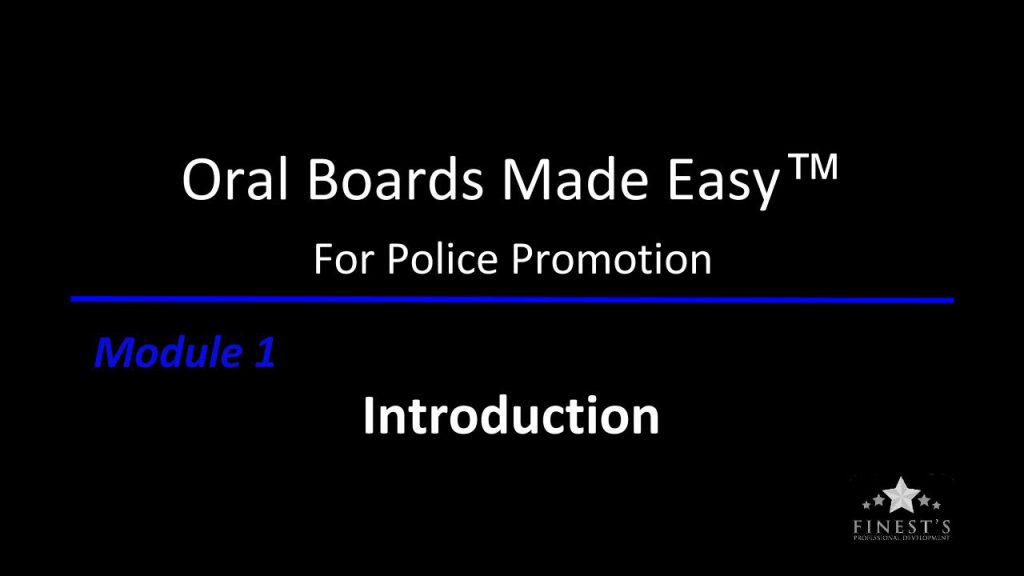
OK, you’re preparing for your police captain oral board. Expect the gloves to come off. You are not a novice. You have elevated yourself from officer to sergeant to lieutenant. The basics of oral boards are familiar to you. You have been through those challenges and have succeeded. So how can they increase the difficulty for a captain-level candidate? They can make the questions more nebulous while expecting your responses to have more depth.
Keep in mind that this is an oral board. There is a difference between an oral board and real life. The reality of reducing crime would be very difficult to sum up in a three-minute response. However, for the oral panel, reality as you know it has to be put in check. The panel is seeking for you to be positive, opportunity-seeking, and knowledgeable on “best practices”. You should know the best practices that can be put to work for your community and department. Bottom line, for the captain’s oral board, pessimism will doom you. Optimism will elevate you.
Let’s work with this one police captain oral board question:
As a newly promoted captain assigned to oversee a patrol district, what will you do to reduce crime?
When this question is presented, consider these three elements:
- Knowledge of your jurisdiction, agency, and the role of the police captain.
- Leadership.
- Crime reduction best practices.
The majority of law enforcement agencies in the United States provide services to municipalities. The considerations below are crafted with that in mind.
Knowledge of your jurisdiction:
What are the specific needs and concerns of your jurisdiction? Is it urban, suburban, or rural? Textbooks are often generic in their management direction. Oral board responses, however, should be crafted toward the specifics of the community. Captain candidates should show that they understand the needs of their community. Most of all, that a community is not just demographics and crime statistics.
Knowledge of your agency:
You will be hard-pressed to find a law enforcement agency that does not have a mission statement. Yes, that official document called a mission statement. Crafted by the agency’s leadership, yet relatively unknown to the front line officer. The mission statement clarifies the agency’s purpose for the members of the agency as well as the community. Because it is a formal document, it stands as a solid reference for you to use in your oral board answers. Look for the word “partnership” in the mission statement. If stated, the Community-Oriented Policing (C.O.P.) philosophy is likely to be the umbrella label for the service model of your agency.
“If you are looking for a well designed assessment / oral interview study program this is the one. The program is very reasonably priced, so don’t risk your career watching free videos or just reading articles on line. If you’re serious about getting promoted, invest in your career and use The Oral Boards Made Easy program. It will help you get promoted.”
-Promoted to Lieutenant in Massachusetts
Knowledge of the role of the police captain in your agency:
In many agencies, captains are responsible for the deployment of resources. Captain candidates should show an understanding of the department’s processes. Processes like budgeting, handling grievances, discipline, training as well as foundations of leadership. It is not enough to talk about the type of leader that you will be as a captain. You should go further and acknowledge the controls that impact the way that you will lead. Controls like a limited budget or a collective bargaining agreement. Furthermore, you need to demonstrate how to remain effective in that environment.
In preparing for the above knowledge components, three strategies would be:
- Review your agency’s mission statement and reduce it to bulleted “talking points”.
- Take inventory of the most pressing needs and concerns within your jurisdiction.
- Use the captain’s job description as a punch list for items you will be prepared to address. (Budgeting and resource deployment are very important.)
Leadership
Oral boards allow for the integration of knowledge with application. Articulating the leadership strategies you will use to advance the agency’s mission is important here. The reality is that there are restrictions as outlined above. Bottom line, the top scores will go to the captain candidates who best articulate how they will navigate their agency environment toward the fulfillment of the department’s mission.
To do that, you should be clear on three points:
- The overarching expectation that you will hold for the personnel under your command. In other words, how will your personnel contribute to the success of the agency.
- The positive influence methods that will motivate your personnel toward that expectation. Try not to negatively impact morale. (You should take into consideration the restrictions identified above.)
- The methods of assessment that you will apply to determine if expectations are being met. The actions you will take when they are, as well as when they are not met.
Watch FREE:
On-Demand Seminar Module 1: Introduction
Crime Reduction Best Practices
There are many strategies that could be considered “best practices”. This article will only focus on three: Community-Oriented Policing, CompStat, and Problem-Oriented Policing.
Community-Oriented Policing
C.O.P. is a philosophy with two major tenets: partnerships and problem solving. Partnerships should be seen as more than just police and community. Rather, partnerships should be focused on as many stakeholders as possible. As in this response, “I will meet with the leaders of corporations and institutions in my jurisdiction to set the foundation for a cooperative working relationship. This relationship will focus on enhancing quality of life, public safety, and stakeholder concerns”. This shows that the captain candidate’s initiative goes beyond working with just residents. It demonstrates expected behaviors down the chain of command. A strong candidate response assures the panel that the S.A.R.A. problem solving model will be reinforced through training. It also assures them of active monitoring of its application to track and replicate successes. (S.A.R.A. means Scanning, Analyzing, Responding, Assessing)
CompStat
Many in law enforcement have argued that CompStat has unattractive components. It is hard, however, to argue with its foundational elements or with the crime reduction that many agencies attribute to this model. CompStat is more than a simple focus on numbers at a command staff meeting. Yes, numbers and meetings are part of it, but the focus is on crime. And as a captain candidate you can optimistically talk about how you will impact crime through your efforts. If you are critical of the CompStat model, you can choose to not address it. You can also indicate how you would safeguard against your concerns when applying that model. If you do choose to cite the CompStat model, be sure to talk about each of the four main elements and how you will specifically apply them. They are:
- Accurate and Timely Intelligence.
- Rapid Deployment of Resources.
- Effective Tactics.
- Relentless Follow-up and Assessment.
Problem-Oriented Policing
Problem-Oriented Policing (P.O.P.) centers on effective approaches to common problems. It seeks to bring about a reduction or elimination of similar incidents that decrease quality of life and safety or increase fear. Do your homework by reviewing the resources at the Center for Problem-Oriented Policing. This is one of the best ways to prepare to speak about how you will deploy resources to deal with specific problems in your jurisdiction. This free resource, located at popcenter.org, has over 70 guides. They address crime and disorder problems, police responses to crime, and tools for problem solving. Start by comparing the list of guides to contemporary issues in your jurisdiction. Next, research relevant guides and extract the key elements. Finally, reduce those elements to bullets so that you can demonstrate your fluency on policing best practices.
Now, let’s go back to that somewhat simplistic question that we began with:
“As a newly promoted captain assigned to oversee a patrol district, what will you do to reduce crime?”
As you can now see, that question allows you ample opportunity to impress your police captain oral board. It allows you to show your knowledge of the duties of a captain in your department. You can demonstrate your knowledge of your agency and community. You can also show your depth of your knowledge on crime fighting approaches. Finally, it exemplifies how you will lead others effectively.
Conclusion
To gain maximum effectiveness, you must do the heavy lifting before the police captain oral board. Do your research. Convert it into talking points. Then you need to practice, practice, practice. A well-honed presentation conveys to the panel the depth of your knowledge. It demonstrates the strategies you will use in the best interests of the agency and community. Most of all, it can move you to the top of the list.








